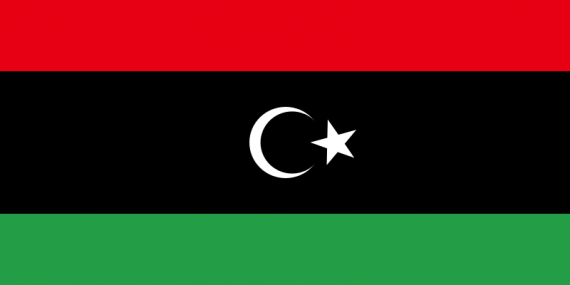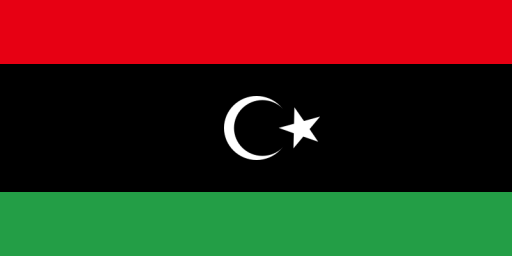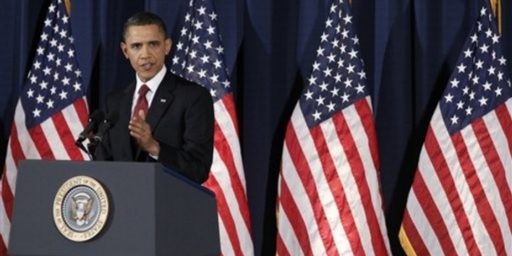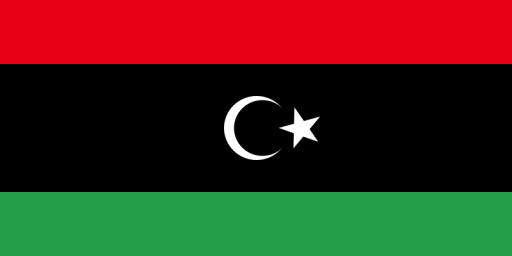Amnesty International: Libyan Rebels Committed War Crimes
A new report from Amnesty International says that Libyan rebels have been guilty of atrocities during their campaign to overthrow the Gaddafi government:
Rebels fighting to topple Libyan leader Moammar Gadhafi committed unlawful killings and torture, Amnesty International said in a report released on Tuesday.
The 100-plus page report, based on three months of investigation in Libya, draws no equivalency between the crimes of Gadhafi loyalists and those of the former rebels, who now hold power in Tripoli: The Gadhafi forces’ crimes were greater, the list of them is longer, and they may have amounted to crimes against humanity, the report said.
But it said the crimes of the rebels were not insignificant.
“Members and supporters of the opposition, loosely structured under the leadership of the National Transitional Council (NTC) … have also committed human rights abuses, in some cases amounting to war crimes, albeit on a smaller scale,” the Amnesty report said.
It said opposition supporters “unlawfully killed” more than a dozen Gadhafi loyalists and security officials between April and early July. And just after the rebels took control of eastern Libya, the report said, angry groups of rebel supporters “shot, hanged and otherwise killed through lynching” dozens of captured soldiers and suspected mercenaries, with impunity.
Mohammed al-Alagi, justice minister for Libya’s transitional authorities, said that describing the rebels’ actions as war crimes is wrong.
“They are not the military, they are only ordinary people,” al-Alagi said. While he aknowledged that rebels have made mistakes, he said they cannot be described as “war crimes at all.”
In addition, the report said both sides stirred up racism and xenophobia, causing sub-Saharan Africans to be increasingly attacked, robbed and abused by ordinary Libyans.
“In February, there was this rumor about Gadhafi using black people as mercenaries; that’s wrong,” Nicolas Beger, director of the Amnesty International European Institutions office, told Associated Press Television News in Brussels on Monday. “But the NTC has not done a lot to curb that rumor and now there is a lot of retaliation against sub-Saharan Africans. Whether they were or they weren’t involved with the Gadhafi forces, they are at real risk of being taken from their work or their homes or the street to be tortured or killed.”
Beger also said abuses were continuing under the new government.
“We have even spoken to guards who admit that they use force,” he said. “They say, ‘Yeah we use force in order to get confessions, in order to force people to hand in their weapons.’ So this really needs to be controlled. This is one of the priorities that the new authorities have to really get a clear act on.”
One of the reasons the UN and NATO intervened in Libya in March was due to the Gaddafi regime’s own human rights violations. Are they, and the people who advocated and supported intervention in the Libyan conflict, going to apply the same standards to the rebels, or are they going to be silent?
I think I know the answer.







So, do I. And here it is right in the quote:
On the one side a government notorious for crimes against humanity. On the other rebels — far less trained forces — guilty of a relative handful of lesser abuses.
Had Amnesty and Human Rights Watch been around in 1944 they’d have said much the same things contrasting US forces — which certainly did behave badly on occasion — and Japanese and German and Soviet forces.
The equivalency would have been false then as it is false now. Nevertheless, NATO state departments are working to minimize even these abuses going forward.
And once again, Mataconis swings and misses on Libya.
@michael reynolds:
Nobody denies that Gaddafi’s regime committed human rights abuses. We all know that. What people like you refuse to admit is that the people who are replacing him are not going to be all that much better, especially if you happen to be a black man from Sub-Saharan Africa.
Once again, Reynolds defends the indefensible.
@michael reynolds:
And the Iraq deja vu continues. We’ve now reached the, “how can you complain about a little sectarian cleansing when we freed 23 million people from a brutal dictator” phase.
It’s only “pockets of deadenders” right?
This is one of your weirder hobby horses, Doug.
You don’t support the return of Gaddafi, to better manage human rights, but essentially argue that Libyans would be better off with him still in place.
A little less dissonance, please.
@john personna:
My argument is simple. We never should have been involved in Libya in any respect at all. We never should have sided with the rebels without knowing who they really are.
@Doug Mataconis:
IOW, you support the Gaddafi regime.
(You really can’t have it both ways.)
(Maybe if there had been a magic 3rd course, Obama would have had it simpler, eh? He could have supported the Mormons, that’s it!)
@john personna:
No, I supported a policy of non-intervention in a conflict that does not implicate American national interests.
@Doug Mataconis:
First, that’s not what this gleeful posting of rebel crimes has been about.
Second, that does not recognize that a President may be faced with choosing between two evils.
Do you have a “policy” of always supporting the existing evils, wherever they my call home?
(You may recall that I was not a huge fan of this action, and would not have supported it from a US-centric policy argument. I was only conditionally supportive, in order to support our allies. That all, again, is a balancing of lesser evils, and realpolitik.
I did not require that the rebels be cartoon bunnies and ponies.)
@john personna:
It should not be the goal of American foreign or military policy to eliminate “evil.” The sole consideration, in my opinion, should be what is in the vital national interests of the United States. Military action should only be taken when those interests are so gravely threatened that no other options are realistically available.
In my opinion, that test was not met in Libya, It was also not met in Iraq in 2003.
@john personna:
By the same logic, does anyone who was opposed or has become opposed to the invasion of Iraq a supporter of the Hussein regime?
The big lesson from that misadventure should be that even though it pains us to watch brutal regimes, removing them often just unleashes problems just as severe. Unless we want to occupy the place in question indefinitely, all that happens is that another dictator just as bad springs up to replace the one we just eliminated.
@Stormy Dragon:
Not anyone who supported containment, overflight, no fly zones, no.
(Was it that hard to find the realpolitik? The lesser evil?)
@Doug Mataconis:
I have no problem eliminating evil, when it can be done at low cost and low risk.
I think that’s a better policy than saying “never eliminate evil.”
@Doug Mataconis:
Well, Doug, if you’re not concerned with evil, I wonder why you wrote this post?
I’ll reiterate what I’ve pointed out to you repeatedly: You won’t find any place where I’ve said the NTC were wonderful people.
On the contrary, I’ve said I don’t know. Also said I don’t know how it will come out. Don’t know whether the new government will be better or worse. I even said I was ambivalent about the decision to intervene but thought it wasn’t much of a big deal either way.
What I have done from the start is correct you when you go off into sheer propaganda. When you say you do know, I say no you don’t. That’s not defending anyone, it’s calling your reasoning into question.
The truth is exactly what I’ve been saying: we don’t know. We’ll see.
Also, a summary might be in order.
So, far Doug, you’ve written that Obama could never get the UN authorizing resolution. Wrong.
You wrote that the NTC were Al Qaeda. Wrong.
You wrote that they were militarily hopeless. Wrong.
You wrote that we would have to send in combat troops. Wrong.
You wrote that the war was stalemated. Wrong.
Now on the basis of these reports you’re trying to draw moral equivalency between NTC and Gaddafi and even the reports you cite don’t support that conclusion. So again, Wrong.
@michael reynolds:
The connections between elements of the Libyan rebel fighting forces and people who fought alongside our enemies in Afghanistan and Iraq are well established. That you refuse to acknowledge them is your problem.
It’s also evident that the rebel military fortunes didn’t turn around until the NATO air campaign shifted from a the civilian protection that UNSCR 1973 authorized to active air support of ground operations.
The reports of human rights abuses by rebels in the wake of their victory are being ignored by the American media and need to be reported on. It would be nice if we knew who Barack and Hillary’s new “friends” in Tripoli really are.
More importantly, though, Michael, you simply refuse to accept the fact that someone disagrees with you and that I don’t think this war was worth America getting involved in regardless of whether it succeeds or not.
@Doug Mataconis:
Maybe it would be a good exercise for you to total boots on ground in our various conflicts, and then to adjust your focus on that basis.
@john personna:
Again, the question for me isn’t about means but ends. The end in Libya had no rational connection to America’s vital national interests in my opinion. Therefore, the means used are irrelevant to me.
Then stop arguing means and argue the original policy. You’re using bs arguments to try and prove you were right about the policy all along. But your arguments don’t prove anything. They aren’t relevant — by your own standards — to the question of whether we should or should not have intervened.
You’re trying to hammer facts into a pre-existing framework. But we don’t have many facts, and trying to force the few we have to fit a pattern you happen to like undercuts rather than buttresses your main point.
We don’t know how the NTC is going to do. But you pointing a finger at this report while at the same time ignoring Jalil’s call for a free and democratic Libya, with representation from all areas, with a moderate interpretation of Islamic law — even those not yet under NTC control — turns this post into propaganda.
Do we know if the NTC will follow through? Absolutely not.
@michael reynolds:
All I am doing Michael is noting facts about Post-Gaddafi Libya that the American media is ignoring and which the Obama Administration would no doubt prefer we not discuss.
@Doug Mataconis:
Supporting allies, who you expect you to support you in turn, is not rational?
@john personna:
Being dragged into a war that is not defensive in nature by one’s allies is the reason George Washington warned us of “entangling alliances”
I agree with Doug. I have always had problems with this “war” because I thought the Libyan Rebels and their ties with other radical groups were problematic at best. That’s not saying we should have supported Quadaffi, but rather we shouldn’t have stuck our nose into someone else’s business to start with esp with no national security interest involved.
Better to deal with the Devil you know (esp a Devil that respects your strength even if he doesn’t love you), rather than root it up for the Devil you know nothing about.
-Polaris